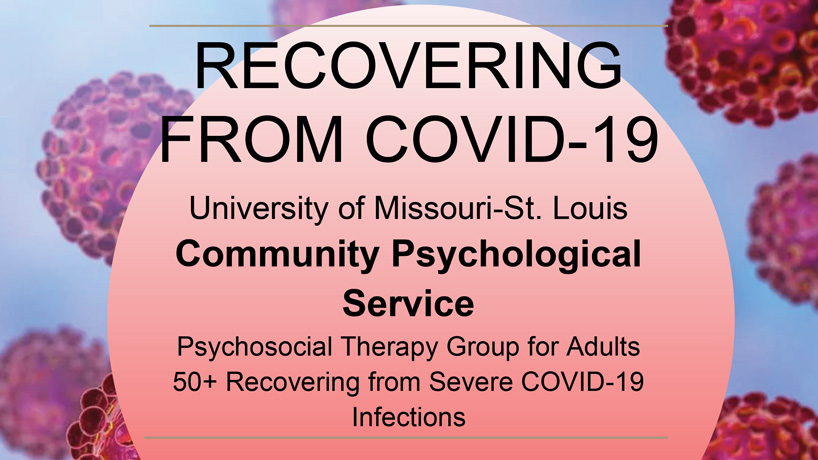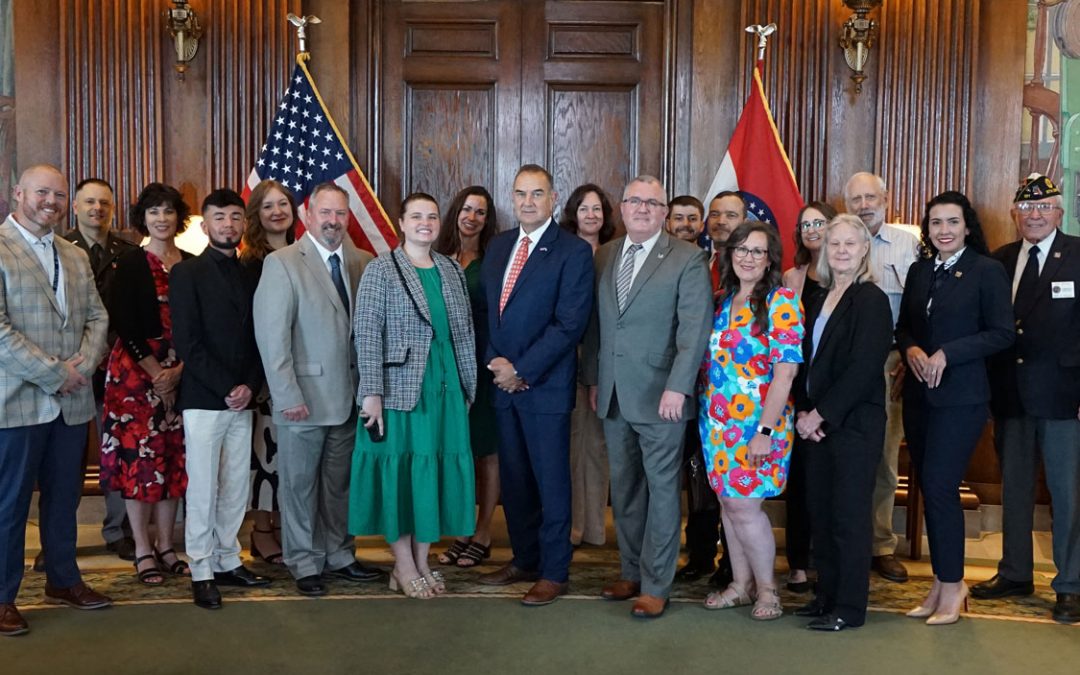
Professor Ann Steffen is leading a new psychosocial rehabilitation group targeted at adults ages 50 and older recovering after being hospitalized because of COVID-19.
The rising death toll from COVID-19 has received regular attention on the nightly news.
But often overlooked are those who’ve survived some of the most serious effects of the disease. More than 3,000 people in the St. Louis region have been hospitalized and are still recovering after returning home.
The Community Psychological Service at the University of Missouri–St. Louis is launching a new rehabilitation group intervention to help them through the healing process. “Recovering from COVID-19” is a psychosocial rehabilitation group designed for adults, ages 50 and older, who are recuperating after extended hospitalizations of three or more nights.
“We know what a really long and arduous process the recovery is,” said John Nanney, the director of the Community Psychological Service and a clinical assistant professor in UMSL’s Department of Psychological Sciences. “There are many symptoms that linger for months after people have cleared the infection, and the hospitalization and medical interventions themselves can be traumatic. Folks – particularly older adults – really need some ongoing support to manage the recovery and address both the physical and psychological toll of the illness.”
The weekly sessions, beginning at 9:30 a.m. next Tuesday, are designed to help them do that.
Ann Steffen, a professor of psychological sciences specializing in geropsychology and behavioral medicine, is developing and supervising the group, which will use evidence-based strategies in-line with emerging best practices across the nation. The group will be co-led by advanced graduate students in the doctoral program in clinical psychology.
Sessions will focus on helping patients and their families stay connected and motivated to do their rehab exercises, as well as provide assistance for improving sleep, managing pain and dealing with the cognitive symptoms that have been associated with COVID-19. The most common brain health concerns include problems with mental fogginess, the ability to focus and memory.
Nanney said the idea for the sessions grew out of a conversation he had with UMSL alumna Kristin Hinrichs, now a clinical neuropsychologist at the SSM Rehabilitation Hospital.
“She had seen our earlier COVID groups and reached out to me to see if we had anything available for people who are recovering from COVID, particularly the kinds of folks that she was seeing in the rehab hospital there at SSM,” Nanney said. “They thought these patients really need this kind of ongoing continuing support, and they weren’t aware of any other groups in town.”
That prompted Nanney to reach out to Steffen and create this group, which patients will be able to access by phone or by Zoom conference for $20 per session. For those who attend four sessions, the fifth session will be free.
Nanney and Steffen are encouraging caregivers or family members to join patients in the sessions at no additional cost to assist those who might be dealing with cognitive impairments, although it is not required.
It is difficult to estimate how many people could stand to benefit from the rehabilitation groups.
“We know that for people who have been hospitalized, more likely than not they’re going to have continuing symptoms,” Nanney said. “Some of the long-term studies coming out are showing that most people have one to three COVID symptoms two months after discharge. Many recovering patients are still symptomatic in fairly significant ways in terms of fatigue, breathing issues, and mental fogginess. This makes it difficult to keep spirits up, stay active and continue the process of recovery.
“Given the numbers, there are probably more than 1,000 people out there in the community who could really benefit from this. Obviously, we can’t serve everybody, but I think it speaks to the substantial need that we have to provide that kind of backend rehabilitation for folks as they try to get back to normal life.”
For more information, contact email umslcps@msx.umsl.edu or call 314-516-5771.
Media Coverage
KSDK
KMOV
St. Louis Public Radio
City Corner














